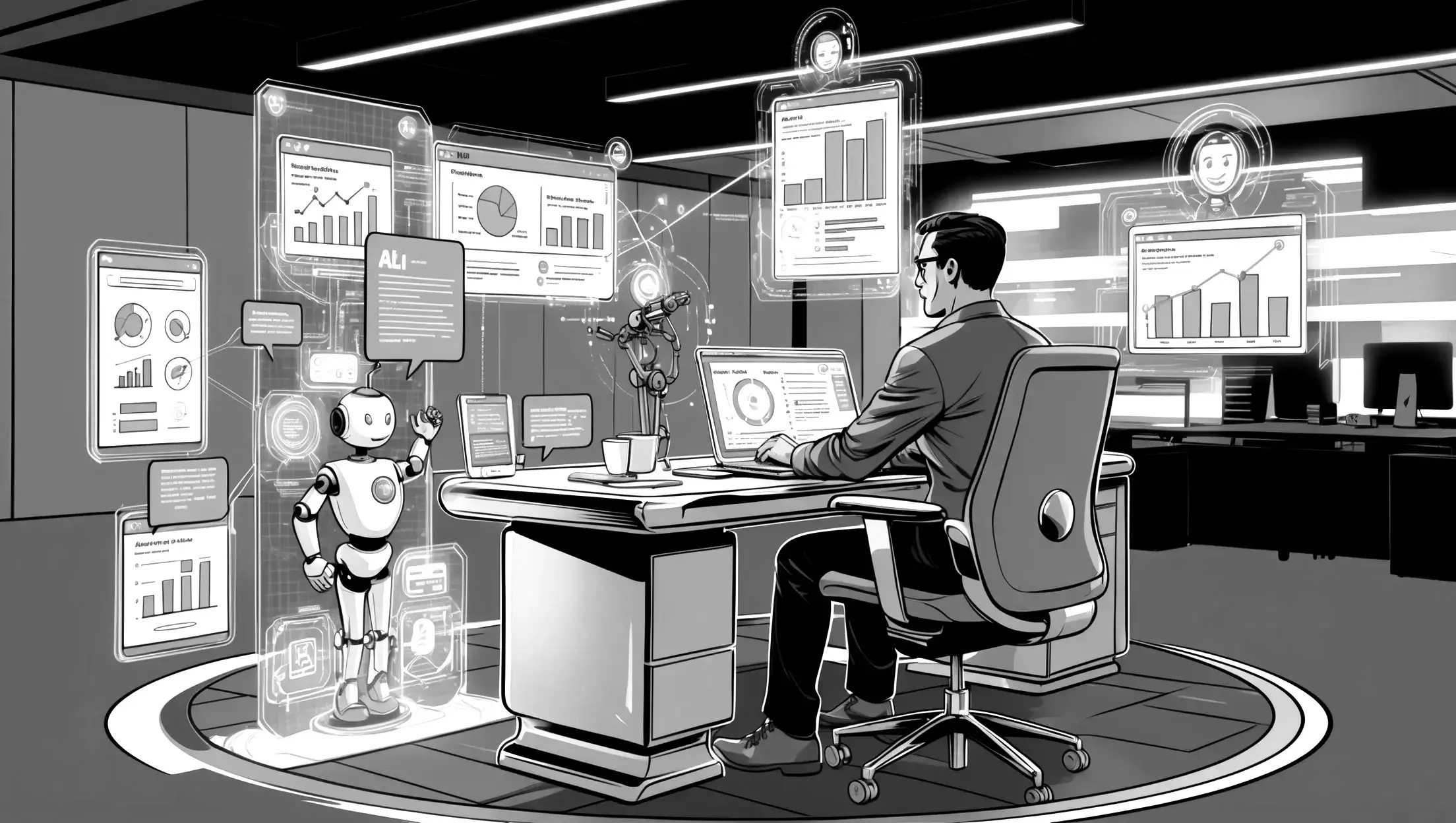Artificial Intelligence (AI) is no longer just a buzzword in B2B marketing—it’s a game-changer. AI transforms how businesses connect with their audiences, from automating repetitive tasks to delivering hyper-personalized campaigns.
But as we approach 2025, AI’s role in marketing is set to evolve even further. So, what can you expect? In this blog, we’ll explore the most exciting AI trends shaping B2B marketing and how you can leverage them to stay ahead of the curve.
1. Hyper-Personalization at Scale
Imagine sending tailored content to thousands of prospects in real-time. In 2025, AI will enable hyper-personalization on a previously unimaginable scale.
How It Works: AI tools analyze customer data to craft personalized experiences based on behavior, preferences, and past interactions. For example, email content that adjusts dynamically based on the recipient’s industry or challenges.
Tools to Try:
- HubSpot AI for personalized email and content recommendations.
- Segment for organizing customer data and creating tailored messaging.
Pro Tip: Leverage AI chatbots to provide custom product recommendations or answer specific client queries instantly.
2. Predictive Analytics for Smarter Decisions
Guessing will be obsolete in 2025. AI-driven predictive analytics will help marketers accurately forecast trends, buyer behavior, and campaign outcomes.
Why It’s Game-Changing: Predictive models allow you to allocate resources more effectively, prioritize high-value leads, and refine campaigns before they launch.
How to Start: Use tools like Adobe Sensei or IBM Watson to analyze historical data and predict future trends. This will empower your marketing team to stay one step ahead.
3. AI-Powered Content Creation
By 2025, AI will help distribute content and create it. AI tools are becoming indispensable for content marketers, from drafting blog posts to generating ad copy.
Why It Works: AI tools can analyze your brand’s tone and audience preferences, ensuring the content resonates. And while AI saves time, the human touch will still be needed for final edits and emotional nuance.
Tools to Try:
- ChatGPT is used to draft blogs, emails, and ad copy.
- Jasper AI is used to generate creative, on-brand marketing content.
4. Smarter Lead Scoring with AI
AI can do more than identify potential leads—it can also rank them based on their likelihood to convert. This ensures your sales team spends time on the most promising opportunities.
How It Works: AI tools analyze browsing behavior, engagement history, and demographic information to assign lead scores.
Recommended Tools:
- Pardot or Marketo Engage for AI-driven lead scoring and nurturing campaigns.
Pro Tip: Combine lead scoring with personalized outreach for maximum impact.
5. Conversational AI to Enhance Customer Engagement
AI chatbots and virtual assistants will play an even more significant role in 2025. They’ll handle everything from answering FAQs to booking demos, ensuring seamless and immediate customer interactions.
Why It Matters: Buyers expect quick responses. AI-powered chatbots can engage prospects 24/7, collect lead data, and guide visitors through their journey without human intervention.
Examples to Explore:
- Drift AI for intelligent chatbots.
- Intercom for conversational marketing and automated support.
6. Dynamic Pricing and AI-Driven Offers
Thanks to AI, pricing strategies will become more fluid in 2025. Dynamic pricing adjusts in real-time based on demand, customer behavior, and market conditions.
How It Works: AI tools analyze factors like purchase history and competitor pricing to offer tailored discounts or packages to individual customers.
Why It’s Powerful: Dynamic pricing increases conversion rates and customer satisfaction by providing value-driven offers.
7. Enhanced Ad Targeting with AI
In 2025, AI will take ad targeting to new heights. AI platforms will analyze massive datasets to identify the best audiences for your ads, ensuring precision and maximizing ROI.
Why It’s Effective: AI minimizes ad spend waste by focusing on highly qualified prospects. It also helps deliver ads when and where your audience is most active.
Platforms to Try:
- Google Ads AI for more competent campaign optimization.
- Meta Advantage+ for automated targeting on Facebook and Instagram.
Conclusion: Embrace the Future of AI in B2B Marketing
AI isn’t here to replace marketers but to amplify their efforts. Adopting AI tools for personalization, analytics, content creation, and lead nurturing, your business can thrive in 2025 and beyond.
At Sell with Marketing, we’re experts in integrating AI into B2B strategies to deliver measurable results. Let us help you harness the power of AI to make 2025 your most innovative and successful year yet.
Sources:
- HubSpot AI Trends
- Gartner Research on AI in Marketing
- Forrester Insights



